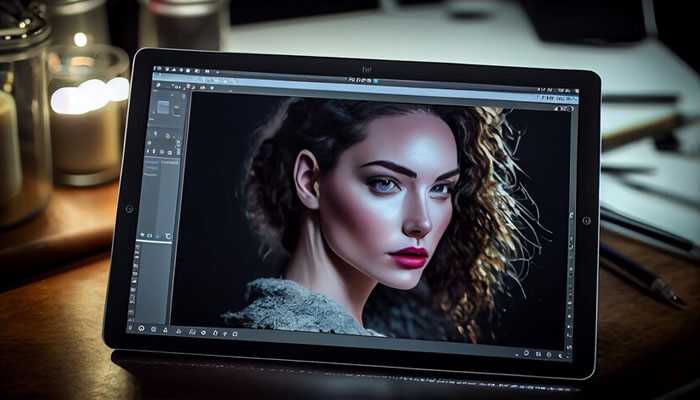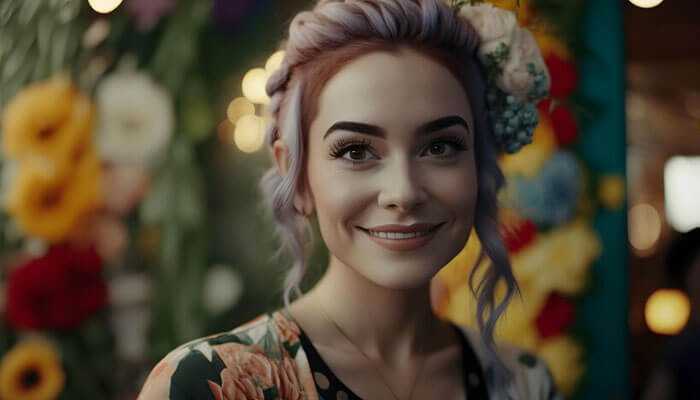Introduction
More and more fields have first been affected and then revolutionized by artificial intelligence (AI) in the recent past, and professional photography is no singular exception. Innovative applications of photo tools integrated with artificial intelligence technology are changing how realistic headshots are created or how images are corrected for different working purposes. In this blog, the author focuses on the topic: of AI in professional photography and, the advantages, and disadvantages of using this advanced technology.
AI in Professional Photography: A Growing Trend
The integration of AI in photography has been in existence for a while with most applications being in image recognition applications and image enhancing tools. AI still further has come a long way to directly contribute to image generation, improvement as well as optimization. This includes developing professional-quality headshots, increasing the resolution of photos, altering the lighting, and even generating images and photos.
To working professionals particularly those in employment sectors that require clear and properly-dressed headshots for applications such as linked-in or company pages, AI presents an option that saves time and money whilst delivering equally as good or even better results. No longer exclusive to large studios these tools have translated into apps and online platforms in order with humanity’s help to take advantage of AI.
How AI in Professional Photography Creates Professional Headshots
Private photographs then utilize headshot generators that are created through AI learning with the help of thousands of professional and high-quality images. Usually, this involves entering an uploaded picture or a couple of shots in raw format from various viewpoints. The AI takes input as data and then performs computational analysis of the image based on factors like light conditions, background, facial orientation or flatness, and even the best shades of colors to provide a refined output image to the user.
In some cases, those artificial intelligence applications produce a completely new picture that resembles the real photographs of the head and may not require the source image in the first place. This is especially useful for virtual avatars or online profiles in which it may be not necessary to use a photo of the person, but it is desirable to make an impressive impression.
Key Features of AI in Professional Photography: Professional Photo Generators
The following are the key features of AI professional photo:
• Background Replacement: It concerns features like background – AI can easily blur all the unnecessary items or even exchange the background for a more appropriate, neutral one.
• Lighting Adjustment: For any headshot to be effective, the lighting must be perfect. Lighting can be altered using AI techniques to simulate studio settings.
• Facial Retouching: Artificial intelligence (AI) retouching technologies can improve facial symmetry, lighten skin tones, and eliminate imperfections without looking unnatural.
• Pose Guidance: Certain AI programs lead users through various positions by recommending viewpoints that best suit industry norms.
The Benefits of AI-Generated Professional Photos
Significant benefits have been brought about by AI in the field of professional photography. These advantages might be useful and significant for job searchers, entrepreneurs, and business professionals.
a. Cost Efficiency with AI in Professional Photography
In contrast with real-life professional photoshoots, the setup and equipment, lighting, photographers’ fees, and studio pay a lot of cash. In this way, people performing the tasks can achieve similar results, which can cost significantly less these days with the help of advanced technologies as well as free applications, or applications requiring low subscription fees.
b. Time Savings
AI-produced images save hours once spent on planning sessions, preparing for those, and making trips to the photographers. The image processing is fast, normally they are instant or at least done in minutes depending on the large size of the images. This is very attractive for many business people who require professional quality images in a short space of time.
c. Accessibility and Inclusivity Through AI in Professional Photography
Not everyone can afford to make a professional photoshoot, either because they live in a rural area or they can’t afford it. This means that self-taught photographers in remote areas or those who do not have enough funds for a professional photographer to take headshots can hire AI tools to do the job.
d. Consistency for Brands
For companies with several offices or many workers, AI portrait tools ensure that all the headshots taken are similar in lighting, backgrounds, and style. This is especially indispensable for organizations that want to achieve a consistent design for any of their online platforms or campaigns, brand marketing collateral, or employee identification.
The Ethics and Challenges of AI-Generated Photos
Professional images produced by AI have many advantages, but there are also potential negative effects and ethical issues to take into account.
a. Authenticity and Trust
AI can generate images that do not exist in real life at all, or produce images that are almost indistinguishable from real ones, and that brings up issues concerning the trustworthiness of the election results disaggregated by segment. While using the images for professional practices, people would expect to see the actual individual and where the images are highly modified or artificially rendered, then an individual is likely to be refused a job or service due to the impression created by the image.
b. Data Privacy and Security in AI in Professional Photography
There are AI photography apps that claim to operate locally but need the users to upload their photographs to the company’s servers, data may be collected, or even abused if not well protected. One of the key aspects is to realize what data is gathered about the users and how those pictures will not be utilized inappropriately.
c. Bias in AI Algorithms
Biases in AI algorithms can occasionally be reflected in the data they were trained on. For instance, if an AI tool has only been trained in images of a specific race or gender, then the reliability when identifying images from different ethnicities, ages, or with different body types may not seem nearly as good. Web applications and the AI algorithms behind them must be designed for interactivity without being unfriendly or negatively prejudiced, to deliver quality and professional results for all.
Conclusion
AI in professional photography is in its essence, a tool that helps clients, reduces their losses, and helps bring high-quality work to clients who would otherwise not be able to afford it. But, conventional photography is still relevant when it comes to observation, something AI, no matter how sophisticated, still lacks.
AI has already made an impression on professional photo shoots, and everyone from corporations to small business owners can look forward to great opportunities with AI. There’s no problem at all if both elements are administered in ways that complement each other and would bring the best innovation from both the Artificial Intelligence and the traditional picture-taking talent of photographers.



